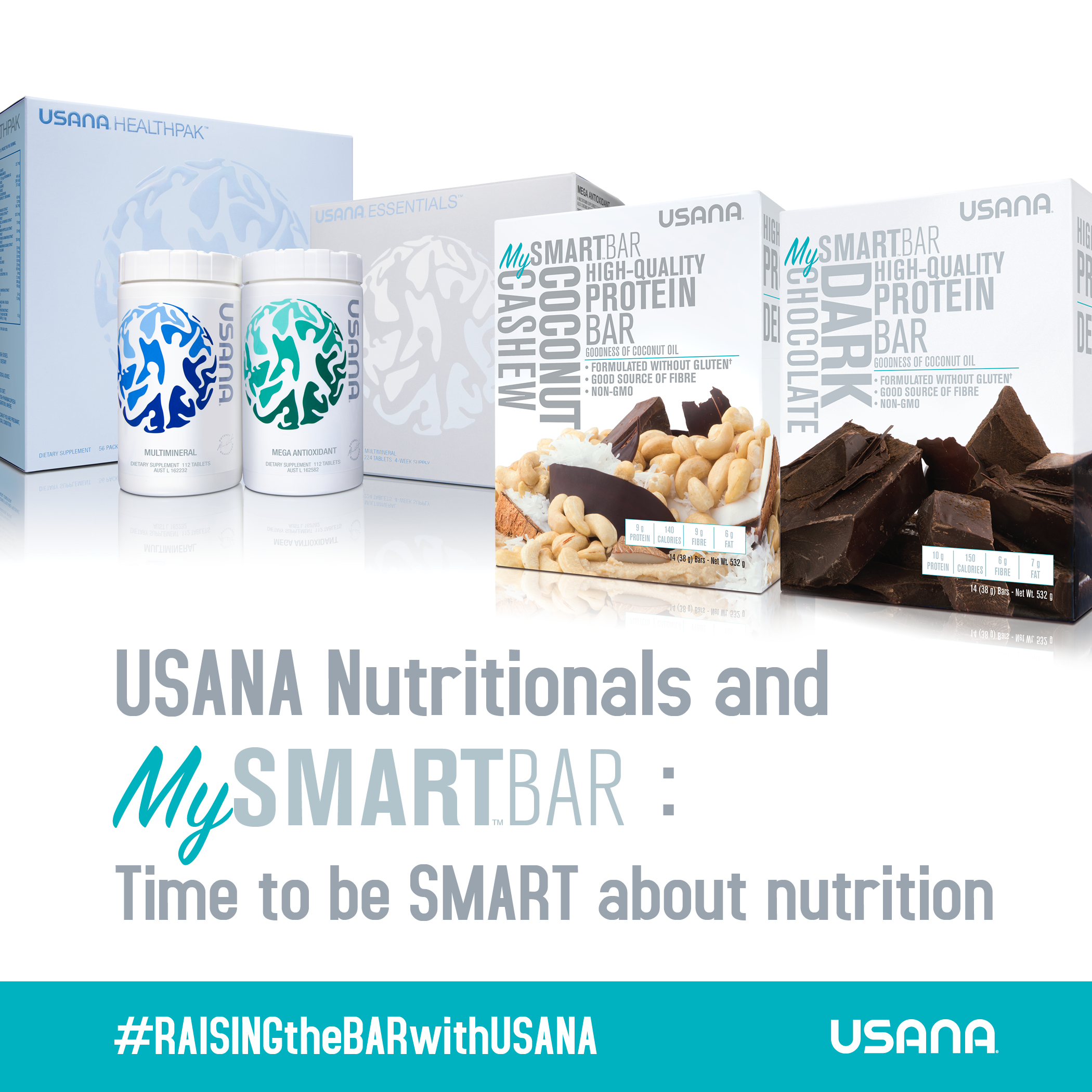The post SMART NUTRITION – MY SMART BARS AND USANA NUTRITIONALS appeared first on Usana Health Sciences Organization.
]]> Bars are a healthy snack which can be added to your diet to support optimal nutrition.
Bars are a healthy snack which can be added to your diet to support optimal nutrition.
Consuming a proper balance of macronutrients— protein, fats, and carbohydrates—is crucial to maintaining a healthy lifestyle. With that in mind USANA has created a new range of MySmart Bars, and with each bar we’re delivering highquality, complete proteins and beneficial fat from coconut oil.
Bars, and with each bar we’re delivering highquality, complete proteins and beneficial fat from coconut oil.
By combining our new snack range with our core products the USANA Essentials or USANA HealthPak you can balance both your macro and micronutrients for optimal nutrition.
you can balance both your macro and micronutrients for optimal nutrition.
At USANA, optimal levels are the only acceptable levels, and optimal levels come from the USANA Essentials and HealthPak . These foundational products provide the right levels of vitamins, minerals, and antioxidants to support your overall health. Of course you can personalise your micronutrients even further by adding additional USANA supplements and optimisers to suit your needs such as our BiOmega
. These foundational products provide the right levels of vitamins, minerals, and antioxidants to support your overall health. Of course you can personalise your micronutrients even further by adding additional USANA supplements and optimisers to suit your needs such as our BiOmega and Proflavanol®C100 for heart health, HepaPlus
and Proflavanol®C100 for heart health, HepaPlus for digestive health, Proglucamune
for digestive health, Proglucamune for everyday immune support or Visionex
for everyday immune support or Visionex for healthy eyes. No matter what your nutritional needs are USANA has a combination which will work for you!
for healthy eyes. No matter what your nutritional needs are USANA has a combination which will work for you!
So what makes the MySmart Bars so smart? Each bar is made with simple, pure ingredients to create a beneficial balance of macronutrients. They are packed with high quality Whey/Milk protein, healthy fats from coconut oil and have no refined sugars. At only 150 Calories or less they are great to eat in between meals or after workout. The MySmart
Bars so smart? Each bar is made with simple, pure ingredients to create a beneficial balance of macronutrients. They are packed with high quality Whey/Milk protein, healthy fats from coconut oil and have no refined sugars. At only 150 Calories or less they are great to eat in between meals or after workout. The MySmart Bars come in two delicious flavours Coconut Cashew and Dark Chocolate.
Bars come in two delicious flavours Coconut Cashew and Dark Chocolate.
Get smart about your nutrtion and make sure you’re body is running at it’s best. A great start is with USANA Essentials or USANA HealthPak , and our delicious MySmart
, and our delicious MySmart Bars.
Bars.
The MySmart Bars range will be on sale in New Zealand in July 2016. To learn more visit www.usana.com or check out our Facebook page.
Bars range will be on sale in New Zealand in July 2016. To learn more visit www.usana.com or check out our Facebook page.
The post SMART NUTRITION – MY SMART BARS AND USANA NUTRITIONALS appeared first on Usana Health Sciences Organization.
]]>The post Five ways to better eye health – go on, take a peep! appeared first on Usana Health Sciences Organization.
]]>USANA Australia Writer and Dietitian
According to Vision Australia, nearly 300,000 Australians are blind or vision impaired, and this figure is expected to rise as more baby boomers reach retirement say the Australian Bureau of Statistics. The good news is that it’s never too late – or too early to nourish your eyes.
Here are five simple ways to boost your eye health!
1. Shield with shades
Regardless of the time of year, if it’s sunny, protect your eyes from intense sunlight. Choose good quality glasses that filter blue light and have 100 per cent UV protection.
2. Watch your screen time and your downtime
Spending long hours working in front of a computer screen can cause eye strain. Likewise, if leisure time means time in front of the screen. So, make sure to take regular breaks. And, to ease strain, regularly focus on an object in the distance.
3. Don’t smoke
Smoking increases the risk of age-related macular degeneration (AMD) and cataracts. The noxious mix of chemicals in cigarette smoke robs the blood vessels of oxygen. Smoking also reduces the levels of two key antioxidants, lutein and zeaxanthin.
4. Nourish, nourish, nourish!
Healthy eating is vital for body and mind and it’s also vital for your eyesight. Antioxidant plant pigments including lutein and zeaxanthin are concentrated in your eyes where they work a bit like sunscreen – absorbing potentially damaging blue light and soaking up free radicals (molecules that can damage cells and slow down the regeneration process). A great source of these vital nutrients is fruit and vegetables. Leafy veg such as kale, cabbage and spinach, as well as yellow and orange capsicums, mango, blueberries, bilberries and citrus fruits like oranges provide lutein and zeaxanthin. Also, oily fish that’s rich in omega-3 fatty acids such as salmon, fresh tuna and sardines can help to support healthy vision – it’s especially good for lubricating dry eyes.
Yet the vast majority of us don’t manage to eat enough. USANA’s excellent ethically-sourced BiOmega is a great choice and if you’re after a vegetarian source of these essential fats, snack on the delicious Go Nuts ‘n’ Berries
is a great choice and if you’re after a vegetarian source of these essential fats, snack on the delicious Go Nuts ‘n’ Berries which provide 500mg – the same as one capsule of BiOmega – in every yummy snack bar.
which provide 500mg – the same as one capsule of BiOmega – in every yummy snack bar.
5. Suplement your nutrition
For good eye health, you need to eat lutein-rich veggies for months before you see the benefits. And, a healthy diet is and always will be the cornerstone to better body health. But, if you want to protect your eyes fast, think about taking a supplement. This is especially important for people who smoke and older individuals – especially if you don’t manage a healthy, balanced diet. Our wide spectrum nutritional supplements – HealthPak and Essentials
and Essentials provide a very wide range of protective vitamins, minerals and plant pigments.
provide a very wide range of protective vitamins, minerals and plant pigments.
According to the UK not-for-profit organisation Sight Support: ‘We need 6-10mg (lutein) a day. It is estimated that the average western diet contains only 2-3mg per daily, which means most of us lack lutein in our food.’
Another study showed that lutein supplementation of 15 mg every three days significantly improved visual sharpness and glare sensitivity in older people. Plus patients given lutein had improved macular function ’.
The Macular Degeneration Foundation Australia agrees, saying, ‘Lutein has been shown to be protective of Macular Degeneration. If your diet is deficient in fresh fruit and vegetables, a lutein supplement should be considered.’
USANA Health Sciences daily eyesight protection formula, Visionex has been developed to promote healthy eyes and acute vision. It contains two of the most powerful eye-protective, free-radical fighting antioxidants lutein and zeaxanthin plus other antioxidants including vitamin C which is also highly concentrated in the eyes.
has been developed to promote healthy eyes and acute vision. It contains two of the most powerful eye-protective, free-radical fighting antioxidants lutein and zeaxanthin plus other antioxidants including vitamin C which is also highly concentrated in the eyes.
Looking for better eye health – the look no further!
* Vitamin supplements should not replace a balanced diet. Use only as directed. Always read the label
The post Five ways to better eye health – go on, take a peep! appeared first on Usana Health Sciences Organization.
]]>The post Catch up with Team USANA superstar, Britta Martin! appeared first on Usana Health Sciences Organization.
]]>On the 19th of April in Taitung, Taiwan, Britta dug deep to win the Iron distance triathlon known as Challenge Taiwan. The gruelling race consisted of a 3.8km swim, 180km bike ride and finished with a 42km marathon! We caught up with Britta between events – read our exclusive catch up here!
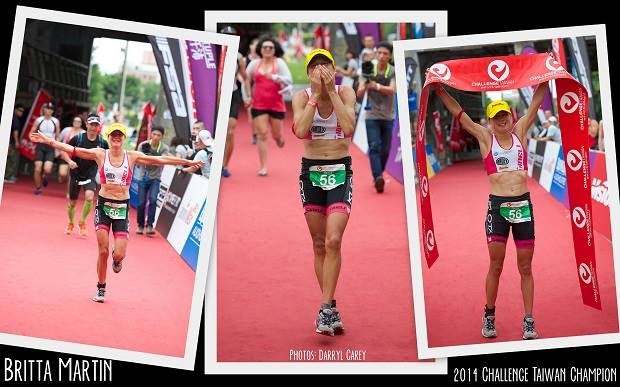 |
| Britta, bringing it home! |
Q. At what age did you start competing?
A. ‘I started doing triathlons recreationally when I was about 24 in 2002. I did smaller events for fun and I absolutely loved it. It all started from there. I was hooked to it. I started doing more and more. In 2009, I did my first Iron distance race (3.8km swim, 180km bike and 42.2km run) as a professional athlete. I had a horrible race, I ended up vomiting the entire run, but I still loved it! I haven’t looked back since then :)’
Q. What was your training regime in the build-up to the Taiwan Challenge?
A. ‘To do a race like that and actually being able to race competitively means having to train a lot. I normally do at least two sessions a day, often involving all three disciplines. I tend to normally train between five-six hours a day. But including eating, sleeping and recovery time, it means being busy all day long six days a week. I normally have one easy or rest day per week which I need to recharge and be ready for another week.’
Q. What USANA products do you take?
A. ‘My products are: Essentials , Proflavanol® C100, Coquinone 100
, Proflavanol® C100, Coquinone 100 , Active Calcium Plus
, Active Calcium Plus and BiOmega
and BiOmega . Furthermore, I love the USANA Fudge Delite
. Furthermore, I love the USANA Fudge Delite Bars as a snack in between sessions or during my rides.’
Bars as a snack in between sessions or during my rides.’
Q. Which product do you think you get the most benefit from? Why?
A. ‘I love all my products and they all have a purpose. But if I had to choose one, I would probably choose the Essentials. They were the first products I started using and I was absolutely amazed. I am a lot healthier since I started using them. I used to get sick a lot, especially in winter. When you train so much, your immune system can get quite weak and you get sick easily. Since I started using the Essentials, I barely get sick anymore and feel a lot better and healthier. It has made a huge difference. For an athlete, the most important thing is to be healthy, otherwise you can’t train properly. Now, I can train consistently and more and that has made a huge difference to my performance in races.’
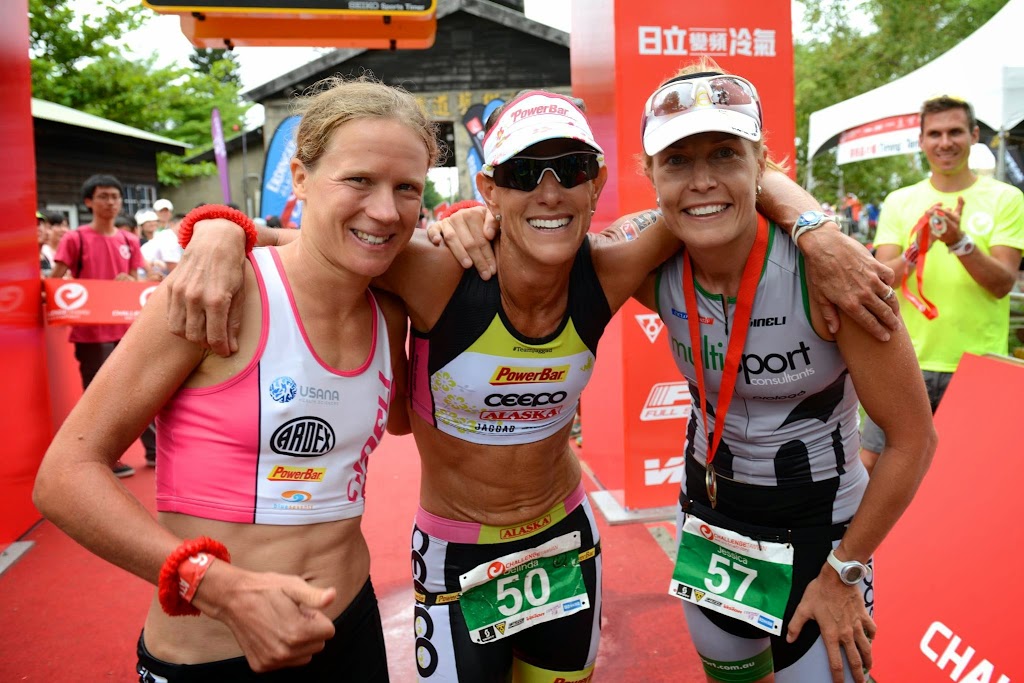 |
| Britta and some buddies |
Q. What made you get into triathlons/iron distance triathlons?
A. ‘I have always been fascinated by the sport, but somehow, I always thought it was for other people and not for me and didn’t quite know, where to start. But while I was at university, I started doing a lot of swimming and a bit of running; I just decided to give it a go. I bought myself a bike and started training on it. I had no idea, what to do, but I loved it. One day, I entered a fun triathlon and I was hooked to it after that. I trained more and more and always knew that one day I wanted to do the Iron distance event. But it took another seven or eight years, before I finally made it to the start line of an Iron Distance Race. A long but exciting journey!’
Q. What advice do you have for up and coming triathletes?
A. ‘For beginners, my advice is to just give it a go. You will love it! It is such an awesome sport and with three sports in one, you get a lot of variety. Set yourself a goal and enter an event and then just enjoy the journey. You will never regret it!
For more ambitious triathletes, my advice would be to be patient. Keep working hard and consistently and it will pay off. Hard work will make you achieve your goals and that will be rewarding. There are no short cuts out there though :). It might take time, but enjoy the journey and just keep believing in yourself. It is worth it!’
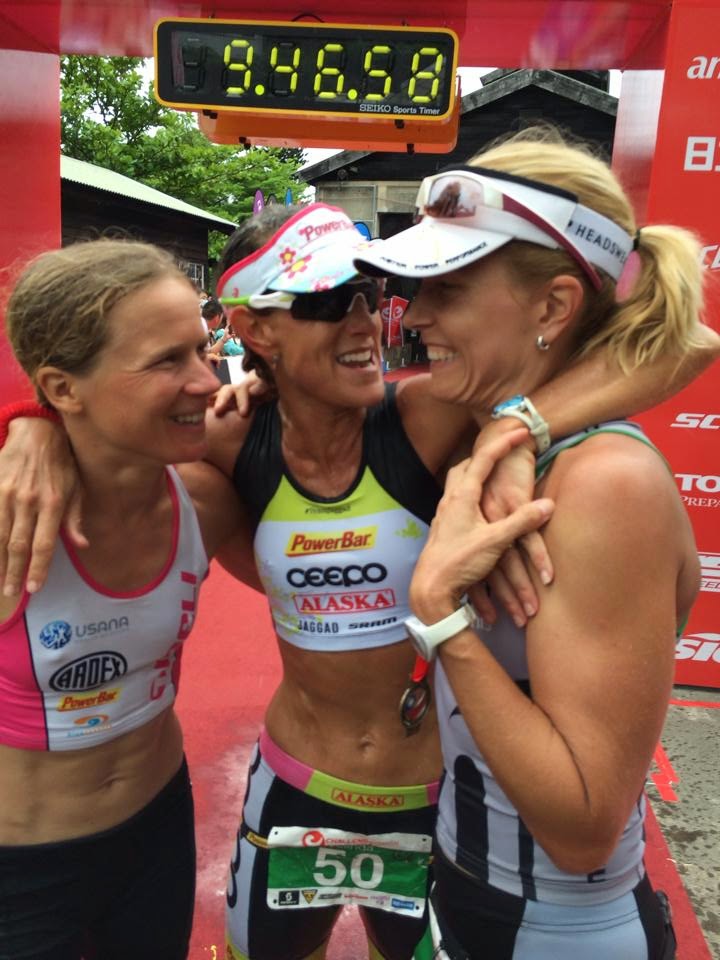 |
| Enjoying the moment! |
Q. Talk us through your thought process during the race. What were the hardest/easiest parts?
A. ‘When starting an Iron distance event, always expect to have a hard day ahead. Swimming is my weakest discipline, so I need to try to stay calm and not panic when everybody else is taking off and leaving me behind. I concentrate on my own race and take it step by step. When I am swimming, I swim and when I am on my bike, I only worry about the bike and don’t look ahead to the run.
In Taiwan, I had a good swim and wasn’t too far behind the others. Once I was on the bike, I tried to take it easy for the first 100km. I was in second place at 100km and again, tried to concentrate just on my race. For the last 80km, I tried to push it and make up as much time as possible. I felt pretty good at the end of the bike ride.
It was important to make sure I ate and drank enough on the bike so that I would be able to run a good marathon and not run out of energy. That was one of the most important aspects during the race. It was very hot, so I had to try to cool myself down as well.
I caught the girl in front of me right in transition area and started the run in first place. Again, my goal was to take it easy for the first 20km and then push it towards the end. I felt very good running and extended my lead. But you never know, what is going to happen in a marathon. I wasn’t sure, that I could win it until about 1km to go. That’s when I started relaxing and began to really enjoy it. There are lots of ups and downs during an event like this. One minute you feel like you can’t continue, but then you come alright again. The last 20km of the marathon is always very hard. I just tried to get to the finish line as fast as possible.’
Q. How did you feel after the race?
A. ‘Winning a race like this made me feel unbelievably happy and relieved and I
had so many emotions and adrenalin floating around my body, that I could barely feel the exhaustion. I was definitely on cloud nine and forgot all the suffering and hard work that went into it. I trained day in and day out for a long time with this goal in my head so it was just great to be able to achieve it.
I couldn’t sleep for a few days! Even though I was exhausted, my body kept going! I was very sore, but that didn’t matter either (although this hit me a few days after the event). Once I was home and had time to come down, I started was exhausted. This feeling can last to up to four weeks after a race like that. It takes a while until the body recovers and rebuilds the muscles and cells destroyed in a race like this. Apparently, it can take up to two months to physically recover completely.
Mentally, it sometimes takes even longer. Being so focussed building up to the race and during it means that it takes a long time until I am able to do another race like this. Some people can do more races a year, but for me two to three full Iron distance races are the absolute maximum. I can do a few more halfs or other races, but being able to push myself to the maximum again in a marathon after a 180km ride and a swim takes a long time!’
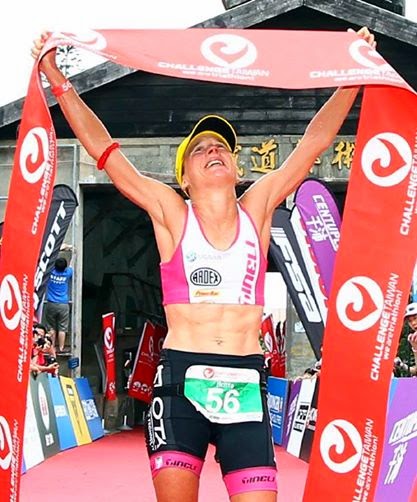 |
| What a winner! |
Q. What did you do to recover?
A. ‘Nutrition is a very important part of recovery. USANA is very, very helpful for me in that period. It’s important to try to get all the nutrition, minerals and vitamins back into the body. And, the body needs a lot during that time to be able to repair. Protein is very important as well. Protein shakes and fish and eggs are on my daily nutrition plan. Hot baths are very good and easy light training is helpful – mainly swimming and biking. It takes the longest time to start running again. I normally have two weeks off where I just do whatever I feel like. After that, I am starting to get back into my training routine again. Back to reality!’
Q. What’s next for you?
‘I will head over to Europe at the end of June to train in warmer weather and do a few races over there. After that, I will go to the United States, to compete in another race in September before come back home to New Zealand. I enjoy travelling overseas, to be in warmer climates and go, wherever the races are, but it is always great to come back home!’
Massive congratulations to you from USANA Britta. We’re all wishing you the best of luck for your next race – we’re cheering for you all the way!
The post Catch up with Team USANA superstar, Britta Martin! appeared first on Usana Health Sciences Organization.
]]>The post Ladies – we’re talking bellies, bloats and bones! appeared first on Usana Health Sciences Organization.
]]>USANA ANZ Writer and Dietitian
There’s no doubt about it – every women is unique. But where it comes to health, us ladies share the odd health challenge. So, this time, we’re talking women’s health and bellies, bones and bloating in particular!
Bellies
If you’re the much-dreaded pear shape (i.e. you carry excess weight around your hips and thighs), you might want to take note. Because while exercising and watching your diet like crazy to prevent getting any bigger and be healthier is important, being a pear may be actually be a healthier option than being apple-shaped.
If you’re apple-shaped – i.e. you carry excess kilos around the middle – health experts believe that you may be at risk a whole set of health problems.
Whilst carrying too much body fat in general is unhealthy, research suggests that too much belly fat AKA central obesity is particularly harmful. This is the kind of fat that sticks around your tummy (visceral fat). It lies deep inside you coating vital organs and producing chemicals which cause inflammation. And its inflammation that’s behind a whole host of health problems – from type 2 diabetes to coronary heart disease.
Short term, inflammation helps your body repair itself. But constant stress is unhealthy. Long-term, it has the opposite effect and triggers chronic conditions. Think of long-term stress as being a bit like your body being damaged by a harsh brush that causes wounding over and over again. The eventual scarring can result in problems with blood flow and reduce the availability of oxygen which all living cells need to survive and thrive.
If you’re in your middle years, it’s especially important to get rid of central obesity – recent research has linked belly fat in middle age with an increased risk of brain problems later on.
Do you need to lose the belly fat?
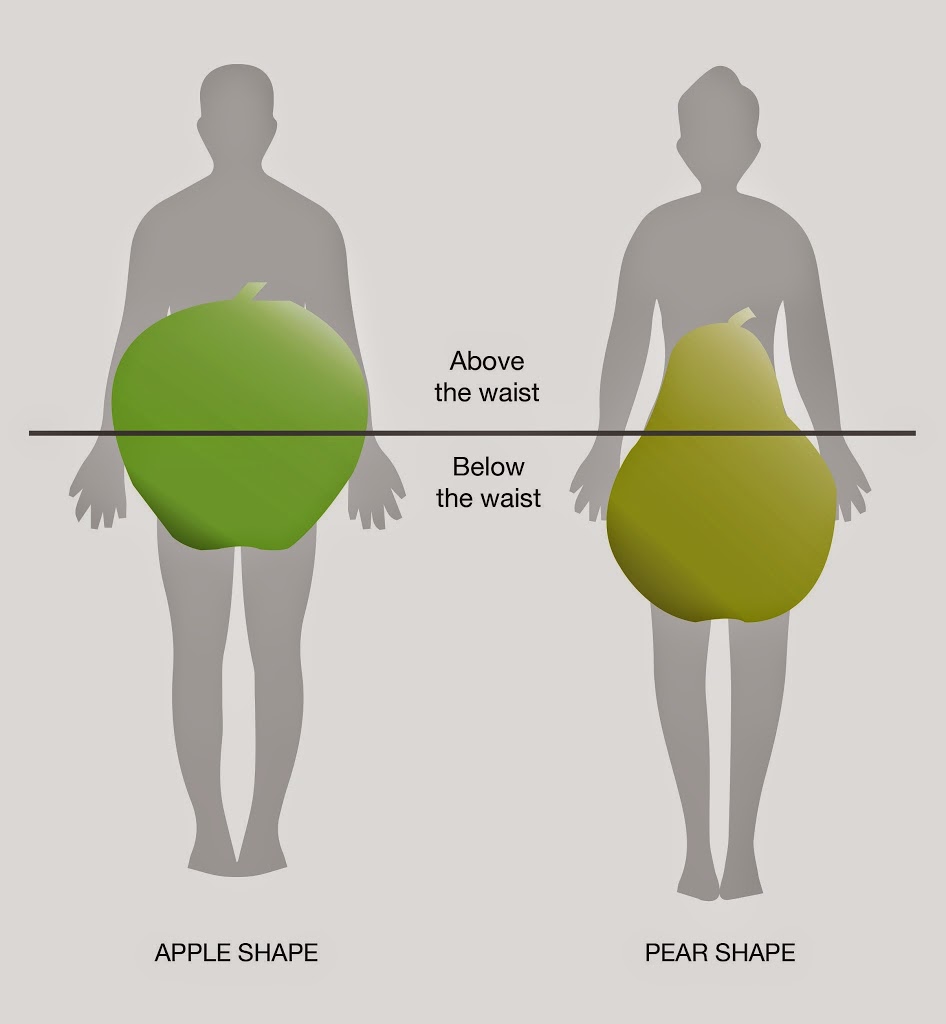 |
| Are you an apple or a pear? |
Measure your middle – if you’re reading over 80cm around your waist, do what you need to do to lose weight until you’re in your healthy weight range.
As you avoid fatty/fried/cheesy/buttery/sugary items, fill half of your plate with simply cooked vegetables, a quarter with wholegrains and a quarter with lean protein.
Following your very own RESET Challenge is an effective way to cut the kilos – great if you want a quick loss jumpstart (if you are pregnant or seeing your doctor for treatment, don’t forget to check first before you embark on a weight or exercising regime).
For five days, replace meals with Nutrimeal – a great tasting meal-replacement that’s low in calories, high in filling fibre and protein and strictly calorie controlled so you don’t need to worry about portion distortion!
– a great tasting meal-replacement that’s low in calories, high in filling fibre and protein and strictly calorie controlled so you don’t need to worry about portion distortion!
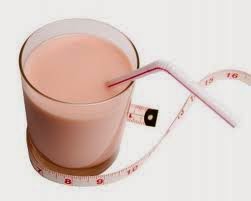 |
| Delicious AND nutritious! |
The stress-belly fat connection
Have you ever felt butterflies in your stomach? That’s just one sign of the connection between your body and your gut and an indication of your stress hormones at work. The feelings are due to a complex set of neurons (nerve cells) in the gastro intestinal tract. It’s their job to monitor pressure, aid digestion, detect nutrients and work to normalise the acidity and alkalinity in the gut. Your digestive system is closely tuned in to your emotions and state of mind – the neurons in your gut and your brain talk to each other. And. there’s a direct correlation between emotions and physical pain, too.
If stress hormones are constantly triggered, the powerful anti-inflammatory hormone, cortisol is released. Over time, this can mean that your body is encouraged to lay down fat, particularly around the middle. Controlling stress with time out and stress-relievers like yoga and meditation plus vigorous aerobic exercise and, of course, eating a healthy mixed diet can all help.
Beneficial beings
More and more research is revealing the link between the friendly bacteria that reside in your digestive tract and overall health – emotional and digestive. But healthy micro-flora can be destroyed by stress, diet and alcohol, lifestyle, illness and the use of broad-spectrum antibiotics.
Feeding your beneficial bacteria can help to support your immune system (beneficial bacteria help to prevent the body from being overtaking by potentially disease forming microorganisms called pathogens).
On the other hand, a poor mix of gut bacteria may contribute to emotional health problems. That’s because your gut flora affects the natural production of enzymes that assist with the absorption of nutrients. So, just as an imbalance of harmful bacterial by-products can interfere with the production of neurotransmitters, beneficial bacteria can help boost it as well as easing gas, bloating, constipation and diarrhoea, whilst supporting the production of chemicals that are essential to life.
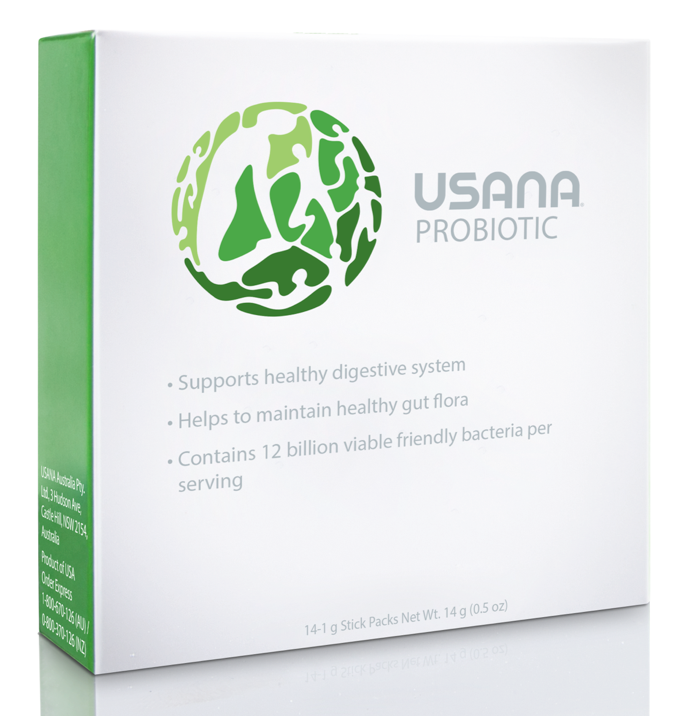 |
| Powerful PROBIOTIC! |
Replenish your good bacteria every day by providing them with the foods they love (wholegrains, legumes, cultured milk products and fermented food like sauerkraut). Also, think about supplementing with USANA’s excellent Probiotic® which is a stable (no fridge required) product that provides billions of beneficial bacteria.
Bones
Lots of minerals work together to build and strengthen your bones and teeth. The major bone mineral is calcium – it gives them strength and resilience. According to Osteoporosis Australia, more than over 50 per cent of women don’t get enough calcium yet getting enough is important at every age and stage. Early on, a healthy intake of calcium helps your bones to be as strong as possible. Later on, it helps to prevent too much of this vital mineral from being removed from the bones thus helping to prevent the bone-thinning condition, osteoporosis.
Weight-bearing exercise can help to strengthen your bones and getting enough via your daily diet is important, too. Good food sources include low-fat dairy products, fortified soya products, nuts (especially almonds), seeds (especially sesame and sesame products), canned fish such as salmon and sardines, and leafy green veggies such as broccoli and bok choy.
Calcium works with other minerals including magnesium to build bone strength. It’s also magnesium’s job to ‘hold hands’ with calcium and take it into the bones and teeth where it is needed and to ensure that it isn’t deposited in unwanted places.
In order for your body to be able to absorb calcium, you need vitamin D but almost 60 per cent of women have low levels of vitamin D according to Past-President of the Australian and New Zealand Bone and Mineral Society, Professor Rebecca Mason. Rebecca Mason says: ‘Over 40 per cent of females have low levels in summer-autumn and this figure rises to 58 per cent of females not having enough vitamin D in winter-spring.’
The most natural way to boost vitamin D levels is exposure to sunlight – a fatty substance in the skin reacts with UV light triggering the production of vitamin D.
Some experts recommend spending time outside without sunscreen – obviously, though, it’s essential to protect yourself against sunburn. Melatonin acts as a barrier to the skin so people with dark skin don’t produce vitamin D as effectively as people with less melatonin (fairer peole) and your ability to produce the sunshine vitamin declines with age.
This fat-soluble vitamin can be stored in the body. But, if you’re carrying too much body fat, vitamin D gets stuck in the fatty tissue and can’t get into the blood and be used where it’s needed.
Not getting enough vitamin D has been linked with a whole range of health problems including fatigue and joint pain.
Ask your doctor for a blood test to check your vitamin D levels. If a test reveals your D levels could do with a boost, try USANA’s Vitamin D tablets – they contain vitamin D3, a form that’s similar to the kind your body makes naturally and it’s the most easily absorbed form.
Also, Essentials and HealthPak
and HealthPak contain vitamin D as does Active Calcium Plus
contain vitamin D as does Active Calcium Plus and Calcium Chewable
and Calcium Chewable . It’s best to take your USANA calcium supplement with meals – stomach acid helps to boost absorption.
. It’s best to take your USANA calcium supplement with meals – stomach acid helps to boost absorption.
For more information, read our latest issue of Product Focus on USANAToday!
Here’s to the best of health!
Vitamin supplements should not replace a balanced diet.
USE ONLY AS DIRECTED. ALWAYS READ THE LABEL.
The post Ladies – we’re talking bellies, bloats and bones! appeared first on Usana Health Sciences Organization.
]]>The post Essentials for all – and pregnancy essentials, too! appeared first on Usana Health Sciences Organization.
]]>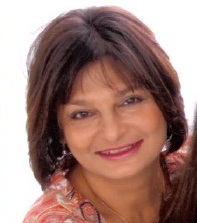 |
| Ravinder Lilly, Writer and Dietitian |
The award-winning mix of vitamins, minerals and antioxidants that make up Essentials was originally formulated by USANA founder, Dr Myron Wentz. He calculated that if the formula could keep cells healthy, they could boost the health of the whole individual and 10 trillion or so cells that make a person.
was originally formulated by USANA founder, Dr Myron Wentz. He calculated that if the formula could keep cells healthy, they could boost the health of the whole individual and 10 trillion or so cells that make a person.
Since then, and research has gradually altered our view and understanding of health and nutrition, the formula has evolved, too. For example, long before the worldwide awareness of wide-ranging vitamin D deficiency (even in the sun-drenched southern hemisphere), the research and development scientists at USANA raised concentrations to optimal levels. So, you could say that Essentials is constantly forming, evolving and improving. Essentials is a great daily choice for the health of people of all ages and stages – and that includes pregnancy!
 |
| A healthy diet and exercise are just two pregnancy essentials |
Pregnancy Essentials!
Women need more of some nutrients during pregnancy. Australia’s National Health and Medical Research Council (NHMRC) recommends a number of nutrients for pregnant and breastfeeding women.
Government experts advise the importance of key nutrients on top of a healthy diet and exercise. For more information on healthy eating in pregnancy, log onto: http://www.foodstandards.gov.au/
Folic acid
Getting enough folate/folic acid in pregnancy is vital because it helps to reduce the risk of neural tube defects. This is where the spinal cord does not close properly and can cause varying degrees of disability in the unborn baby.
Find folate in leafy green vegetables, leeks, oranges, wholegrains, wheat germ and unsalted nuts.
As well as eating folate-containing fruits and vegetables, the government strongly advises that women take a folic acid supplement (folate and folic acid are the same vitamin but it’s called folic acid when in supplement form). It is best to take this for three months before conception if possible and for the first three months of pregnancy. And since a number of pregnancies are unplanned, taking Essentials daily could be a brilliant nutritional health insurance!
• All pregnant women should take a supplement that contains folic acid.
• Food Standards Australia New Zealand (FSANZ) advises: ‘Look for supplements that contain at least 400 micrograms of folic acid.’
• Essentials provides 500mcg folic acid per daily dose making it a good choice during pregnancy.
• Women carrying more than one baby, those who are taking certain anticonvulsants, women with diabetes and those who have a tendency towards blood clotting or a family history of neural tube defects need to take a much higher dose of folic acid – talk with your doctor for individual advice.
Iodine
Mild-to-moderate iodine deficiency has been seen in Australia and New Zealand since the early 2000s. According to FSANZ: ‘Much of the Australian and New Zealand food supply is now low in iodine, which has led to widespread iodine deficiency .’
Lack of iodine can lead to irreversible learning difficulties in the unborn child.
• All women should take a supplement that contains iodine.
• During pregnancy, the NHMRC and the New Zealand Ministry of Health recommend that women take 220μg (220 micrograms) of iodine per day. Women who are breastfeeding should have 270μg per day .
• Essentials contains 300μg iodine per four tablet daily dose so it’s suitable for pregnancy and breastfeeding.
NB Seafood is a good source of iodine, as is seaweed and sushi but sushi is not recommended in pregnancy because it contains raw fish which should be avoided because of the small risk illness/mercury build up.
Vitamin D
Around one in three of us has mild D-deficiency which is essential for the body to absorb and use calcium.
For pregnant and breastfeeding women (and for all adults up to the age of 70), a daily dose of 15μg (or 600 IU) of dietary vitamin D is recommended. Scientists have set the safe upper limit as being 100μg (4000 IU) .
• Most pregnancy supplements provide less than the recommended adequate intake of 15μg (600 IU) so if you’re at increased risk of deficiency, consult your doctor for advice.
• Essentials contains 20μg (800 IU) per daily dose of four tablets.
Vitamin B12
Needed for the development of the nerves and for healthy blood, vitamin B12 is found mostly in animal products (such as meat, eggs and dairy). Algae is a vegan source but vegan mums-to-be may need a supplement of vitamin B12 daily.
• Essentials contains 200μg per four-tablet dose.
• Unlike some B12 containing nutrition supplements, Essentials is suitable for vegetarians.
But it takes two to make a baby…
Poor motility (how fast sperm swims) is a sign of DNA damage to the sperm and can be caused by free radicals.
According to Dr Anne Clarke from Sydney’s Fertility First which aims to help couples with pregnancy: ‘If more than 20 per cent of the sperm have evidence of DNA damage, the couple’s chances of getting pregnant is significantly reduced and the risk of miscarriage is three to four times higher.’
Diet is not the only factor but it is an important one. So, a healthy antioxidant-rich diet is an essential for men, too. Dr Clarke says that around one in eight men have an enzyme that makes it difficult to absorb folate from the diet. And, folate deficiency together with low levels of vitamin B6 and vitamin B12 are linked with DNA damage in sperm and that’s where a supplement can help build up healthy levels. Taking a good quality nutritional supplement for just two months can often reverse sperm DNA fragmentation said Dr Clarke. Talk to your doctor for more information.
Ask your doctor about whether you need to take iron and or calcium supplements in pregnancy.
Vitamin supplements cannot replace a healthy, balanced diet.
The post Essentials for all – and pregnancy essentials, too! appeared first on Usana Health Sciences Organization.
]]>The post Why Do We Need Nutrition? appeared first on Usana Health Sciences Organization.
]]>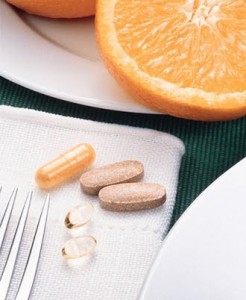 When we are out and about and see lots of vitamin shops, the shops are always filled with people who eager to find good ‘health’ from the bottles displayed on the shelves, have you ever thought why do I need nutrition? We all want to stay healthy, but what’s the benefit of taking nutritional supplements? We could spend hours counting up the numerous benefits, however through listening to others’ stories and see how they got involved in the ‘nutrition revolution’, could this prove inspiring to you?
When we are out and about and see lots of vitamin shops, the shops are always filled with people who eager to find good ‘health’ from the bottles displayed on the shelves, have you ever thought why do I need nutrition? We all want to stay healthy, but what’s the benefit of taking nutritional supplements? We could spend hours counting up the numerous benefits, however through listening to others’ stories and see how they got involved in the ‘nutrition revolution’, could this prove inspiring to you?
I recently asked this question to some of my colleagues in USANA Australia and New Zealand, and found they all have a story to tell – and trust me, it’s not because they are USANA employees, it’s because that they actually need additional nutrition, just like you.
Story 1:
“When ladies reach a certain age and time in their life, the body goes through another set of ‘change’…..by experimenting with the dosage of USANA supplements and introducing ones that I might not normally have taken, this ‘change’ was easily managed.”
Marissa Penfold, Business Manager, USANA New Zealand
Story 2:
“Around the time I started at USANA, I was suffering through periods of tiredness where I’d have low energy levels for days. I had taken other brands of multivitamins before but it didn’t seem to have made a difference to my overall health. I decided to give USANA Essentials a try and I felt like my old self and had tons of energy every day – even after putting in a long day at work!
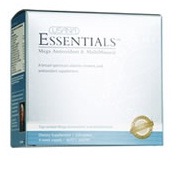 After seeing such great results in my health, I got Essentials for my sister and friends and they too reported feeling healthy and energetic. This was my cue to take Essentials regularly, I always used to think I was getting enough nutrition from food but after taking Essentials I realised that supplementation was also vital. I am pregnant now and I also take Vitamin D and BiOmega III and so does my partner.”
After seeing such great results in my health, I got Essentials for my sister and friends and they too reported feeling healthy and energetic. This was my cue to take Essentials regularly, I always used to think I was getting enough nutrition from food but after taking Essentials I realised that supplementation was also vital. I am pregnant now and I also take Vitamin D and BiOmega III and so does my partner.”
Rashida Tayabali, Marketing Team Member, USANA Australia
Story 3:
“I take supplements in the form of vitamins, minerals and herbs for lots of reasons. For a start I always look to nature for help with my health. My experience has been that most symptoms diminish once you get back to good eating, add a few therapeutic herbs and take better care of yourself. I also take supplements so I can stay younger longer. As a woman, it’s particularly important to stay looking and feeling good for as long as you can. There’s no reason why you can’t feel gorgeous and energised into your 60s and beyond. I also love to exercise and I don’t want anything to get in the way of that. I don’t want to have a bad back or sore joints or any of the other degenerative conditions get in the way of my ability to move. Walking in the national park and my regular yoga is just too valuable to me. Finally, one other major reason I take supplements is because I plan to make it to well into my 90s. There are just so many things to do in this life that I need that many years to do them all. And I want to have my wits about me when I do them!”
Brenda Rogers, Training and Development Manager, USANA Australia
Story 4:
“Before I started taking nutritionals, I thought I was very healthy, really. I am in my early 30s and have a healthy lifestyle – I go swimming; eat at least two varieties of fruit every day; drink lots of water; don’t smoke; don’t drink; don’t stay up late in the evening… you name it! And I haven’t been sick for at least two or three years! However, in my last blood test, my GP told me that my Vitamin D level was very low and I had to take Vitamin D supplement, or… I don’t want to share what my GP said with you after that word ‘or’. But I was scared enough to get a bottle of USANA’s Vitamin D on the following day.
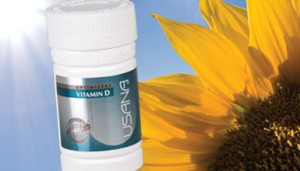
There is a piece of news about the famous composer, Mozart, who passed away in his mid 30s, and the cause could be Vitamin D deficiency, and I don’t want to be a second Mozart! Also, my theory is ‘to do the best I can’, so for nutritionals, I prefer the best quality ones and USANA is obviously the right choice.”
Nancy Wang, Marketing Team Member, USANA Australia
There is a nutrition training session happening tonight at USANA head office in Castle Hill Sydney. USANA Associate, Casey De Croon will be discussing “Why we need nutrition”, for anyone who thinks that they get everything from their diet. If you want to know more about the whys, please arrive by 7.20pm tonight (August 10) and the training will start at 7.30pm. Hope to see you guys there!
Note: Vitamin supplement should not replace a balanced diet. Use only as directed. Always read the label.
The post Why Do We Need Nutrition? appeared first on Usana Health Sciences Organization.
]]>The post Tips for winter appeared first on Usana Health Sciences Organization.
]]> Brrr – it’s getting cold! Winter has definitely set in. Not only is it getting harder and harder to get out of bed in the morning, it seems to be getting harder to keep colds and flu’s away. Are you starting to notice yourself sniffling on your way to work and more and more people staying at home sick? Well take these simple tips and look after your family and yourself this winter.
Brrr – it’s getting cold! Winter has definitely set in. Not only is it getting harder and harder to get out of bed in the morning, it seems to be getting harder to keep colds and flu’s away. Are you starting to notice yourself sniffling on your way to work and more and more people staying at home sick? Well take these simple tips and look after your family and yourself this winter.1.Eat the proper foods
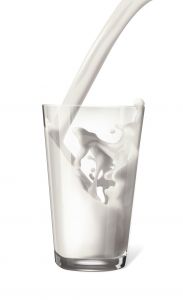
Get the recommended servings of fruit, vegetables and dairy for the day. Three servings of vegetables a day and two serves of fresh fruit and dairy should help you on your way to staying healthy.
2. Wash your hands
Did you get off the bus this morning and think “wow – they’re a lot of germs going around”. Make sure you wash your hands with warm water and a good antibacterial soap for at least 60 seconds. Try using hand sanitiser to keep those germs at bay.
3 .Get enough sleep

Everybody needs a different amount of sleep – sleep is so important for your body to recover and rejuvenate from an exhausting day. Getting run down is one of the easiest ways for viruses to have the strength to attack your body so try to start a routine; go to bed at the same time every night and try to get at least 7 – 9 hours sleep so you’re ready to hit the ground running the next morning.
4.Exercise

It’s hard to exercise in winter – all you want to do is to curl up under a blanket with a nice hot cup of tea but try to do a little bit every day. It’s recommended to do at least 30 minutes of exercise a day. Why not a brisk walk to stay warm? Try a class at your local gym, even a boxing or a pump class to get the heart rate up.
5.Take su pplements
pplements
Make sure your body is getting the right amounts of essential vitamins and minerals to keep it in its best shape. Look for a qood quality multi-mineral and mega antioxidant like USANA’s Essentials. Fish oil is also beneficial for everyone! Omega-3 fatty acids support a healthy heart, joints, eyes and brain.
6.Get some sunshine
All the winter chills are probably decreasing the amount of sun you get a day – so make sure you’re gettin g enough Vitamin D this winter with some natural sunlight. Like most people, you may be deficient so think about supplementing with Vitamin D. Check your vitamin D levels with your health professional.
g enough Vitamin D this winter with some natural sunlight. Like most people, you may be deficient so think about supplementing with Vitamin D. Check your vitamin D levels with your health professional.
Hopefully, these hints will help you to keep those germs at bay. Rug up and make sure you stay warm. Have a great winter!
The post Tips for winter appeared first on Usana Health Sciences Organization.
]]>